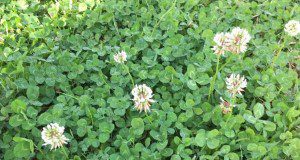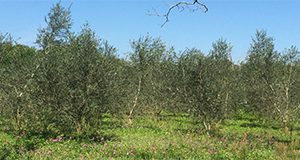Weeds are a major contributor to yield loss and reduction in yield quality in an agricultural setting, competing with the crop for resources like light, water, and nutrients. This competition, along with the cost of weed management strategies like tillage and herbicides, is responsible for the economic impact of weeds, which can reach into the billions. Weeds can also harm crop plants by acting as reservoirs for destructive plant pathogens, the insect vectors that move these pathogens from plant to plant, or both. This new 7-page publication of the UF/IFAS Horticultural Sciences Department, written by Morgan Byron, Danielle Treadwell, and Peter Dittmar, summarizes previously published weed-pathogen associations to help growers scout and monitor pathogens in weeds near production areas.
https://edis.ifas.ufl.edu/hs1335
Tag: Morgan Byron
Develop Your Own Florida Olive IPM Plan
To remain in optimal health and produce optimal yield, olive trees need excellent nutrition, the right irrigation, and good care to help them stay healthy so that they can withstand injury from pests and diseases. This 10-page fact sheet written by Morgan Byron, Eleanor Phillips, and Jennifer L. Gillett-Kaufman and published by the UF/IFAS Entomology and Nematology Department touches on some aspects of olive tree health that will help improve your trees' natural resistance to pests and pathogens. At the end of the guide is a monthly care and observation schedule to help you recognize when you should begin scouting for key pests and when important grove management decisions should be made.
http://edis.ifas.ufl.edu/in1251

